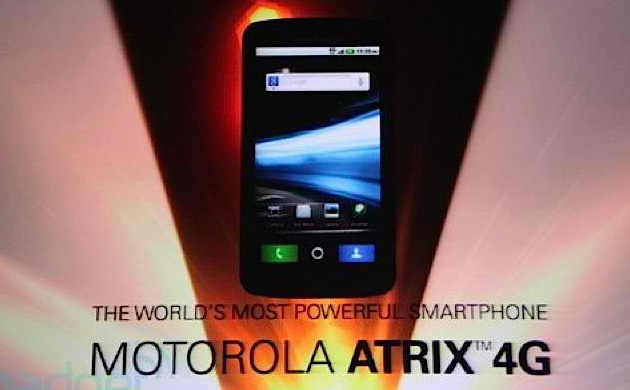Realistically, How Much Oomph Will Dual-Core Deliver to Mobile Devices?
Dual-core devices are generating the most excitement at CES this year. The LG Optimus 2X, aka the second stab at the SuperPhone. Motorola's matching Atrix smartphone and its Xoom tablet. The lurking BlackBerry PlayBook. Even the so-far-absent but much-rumored iPad 2.
Expect the market this year to segment itself between performance-minded tablets and smartphones powered by dual-core ARM chips based around the 1 GHz Cortex A9-MPCore, and less-expensive mass-market offerings running single-core versions of the A9.
Reviews so far are positive, though wholly anecdotal and unscientific. CrackBerry says the BlackBerry PlayBook "is seriously snappy, thanks to its dual core processor," while Tech Radar calls the Atrix "lightning fast."
But how much faster will dual-core devices really be? For reference, let's go back to when dual-core CPUs first arrived on PCs half a decade ago, customers were disappointed to find out that two 3 GHz cores did not make their PCs twice as a fast as one with a single 3 GHz CPU. There were too many other factors - hard drive speed, broadband connection, applications not-optimized for more than one core. - dragging the CPU down.
There was a performance boost, sure, but it was always significantly less than 100% and how much depended on what you were doing. Surfing the web while encoding video in the background? Heck ya. Surfing the web while listening to music. A little bit. Booting Windows or printing or running Microsoft Office? Usually undetectable.
Dual-core devices, at least initially, will probably enjoy an even smaller advantage over single-core ones. My reasoning:
1) Devices are generally much more 'connected' than PCs, meaning more of the latency in the user experience is due to network delays than when using a PC.
2) Apart from listening to Pandora while surfing the Web or reading e-mail, users don't multi-task on devices much today.
3) It took many years before programmers started to begin to understand how to optimize their applications for parallel systems like multi-core PCs. Even today, writing for parallel remains a black art, taken advantage only by those that really need it. While OSes like Android and iOS are multi-threading capable, based on questions like this, mobile developers will likely undergo a similar learning curve.
4) Graphic-intensive games are embarrassingly parallel and thus can benefit hugely from the addition of more cores. However, most games popular on devices tend to be of the casual Angry Birds variety, not the ultra-realistic shooters popular on PCs.
Dual-core smartphones will be faster than single-core ones, but twice as fast? Um, nope.
That doesn't mean that multi-core devices won't become the mainstream as they have on PCs. They certainly will - and we'll all reap the benefits down the road (2-3 years?). My reasoning:
1) Just as Intel did, ARM is emphasizing more rather than faster cores in its roadmap. Cores are more modular and thus easier for the OS to turn off in order to cut down on heat and preserve battery life - key factors on devices. ARM chip maker Freescale has already talked up its quad-core Cortex A9s. The coming Cortex-A15 MPCore can come with between 1-8 cores, giving it 5 times the performance of the Cortex A9, according to ARM.
2) Mobile operating systems will only get bigger. In particular, Windows 8, when it arrives in 2013 time frame.
3) Apps are getting heftier, in particular enterprise apps. Rather than serving simply as lightweight front-ends to server-based enterprise software, apps, especially on tablets, will become more powerful, doing more processing and numbercrunching locally, all in order to offer users the best performance possible.
4) Developers will eventually get savvy to multi-core programming, due to user performance demands and the unity of chipmakers like Freescale, Nvidia, Qualcomm and others.
-----------
Is the impact of dual-core on devices over-hyped or properly hyped?
